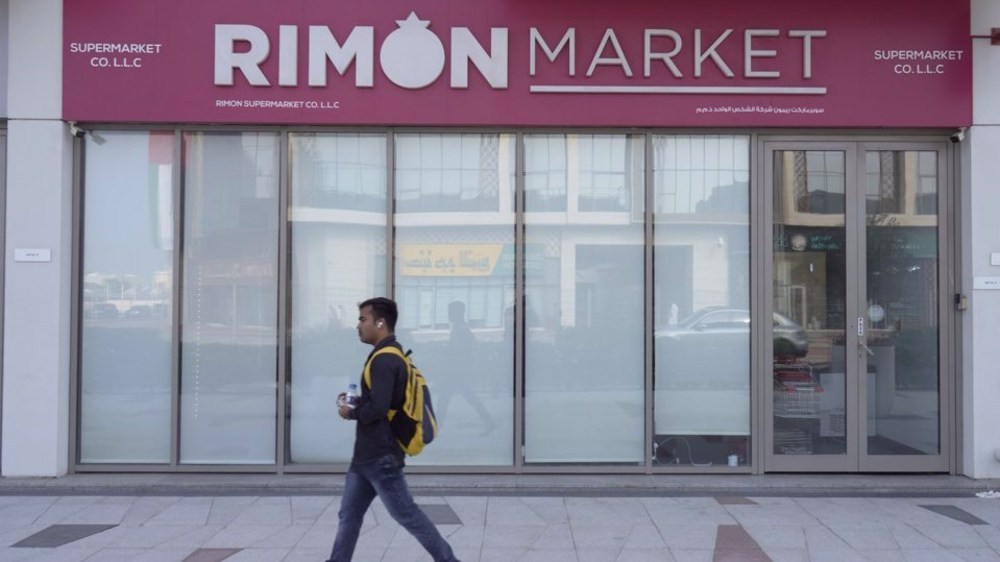Qatar files lawsuits against UAE, Saudi banks over currency intervention
Qatar has filed three lawsuits in London and New York against Saudi and Emirati banks, accusing them of using what it called overseas currency manipulation to sabotage its economy amid an ongoing Riyadh-led diplomatic and trade boycott against Doha.
The cases name Luxembourg-based Banque Havilland, the United Arab Emirates' First Abu Dhabi Bank (FAB) and Saudi Arabia's Samba Bank, Qatar's government communications office said in a statement on Monday.
The statement noted that Banque Havilland tried to weaken the Qatari riyal by submitting purported fraudulent quotes to foreign-exchange platforms in New York in a bid to disrupt indices and markets where significant Qatari assets and investors are located.

First Abu Dhabi Bank and Samba Bank also were engaged in “financial market manipulation,” the statement pointed out.
The statement did not go into details about the extent of the alleged damage or the compensation being sought.
The Qatar Central Bank is investigating suspected attempts to devalue its currency at the height of a diplomatic standoff with its Persian Gulf neighbors that started nearly two years ago.
Qatar has been facing an economic and diplomatic blockade by Saudi Arabia and a number of its allies since June 2017.
Late last year, the governor of the Qatar Central Bank said the country’s economy has shown resilience in the face of the Saudi-led blockade.
“We have surmounted this crisis, we’ve become even stronger than before,” Sheikh Abdullah bin Saud Al Thani said at the Euromoney Qatar Conference 2018 in Doha on December 11, 2018.
He said Qatar’s international reserves and foreign currency liquidity amounted to 46.5 billion dollars at the end of September, compared to 45.7 billion dollars at the end of May last year.
Al Thani further noted that the state budget marked a surplus of 7.1 billion riyals during the first half of the current year in comparison to a deficit of 35.4 billion riyals in 2017.
“These results were achieved despite the unjust siege imposed on us. Qatar is stronger today than ever before; and its economy is more resilient than it used to be before June 5, 2017,” the governor pointed out.
Saudi Arabia, the UAE, Bahrain and Egypt cut off diplomatic ties with Qatar on June 5, 2017, after officially accusing it of “sponsoring terrorism.”
The administration of the Saudi-backed and former Yemeni president Abd Rabbuh Mansur Hadi, Libya, the Maldives, Djibouti, Senegal and the Comoros later joined the camp in ending diplomatic ties with Doha. Jordan downgraded its diplomatic relations as well.
Qatar's Foreign Ministry later announced that the decision to cut diplomatic ties was unjustified and based on false claims and assumptions.
On June 9, 2017, Qatar strongly dismissed allegations of supporting terrorism after the Saudi regime and its allies blacklisted dozens of individuals and entities purportedly associated with Doha.
Later that month, Saudi Arabia and its allies released a 13-point list of demands, including the closure of Al Jazeera television network and downgrade of relations with Iran, in return for the normalization of diplomatic relations with Doha.
The document also asked Qatar to sever all ties with the Muslim Brotherhood and the Lebanese Hezbollah resistance movement.
Qatar rejected the demands as "unreasonable."
Leader: Iran has no proxy forces in West Asia
US fighter aircraft shot down ‘in friendly fire’ amid aggression on Yemen
Yemeni FM: Israel’s sponsors accountable for ongoing aggression on Sana’a
Eight Palestinians killed as Israel attacks Gaza school, hospitals
VIDEO | Rome, Milan host new protests in solidarity with Palestinians
Dec. 21: ‘Axis of Resistance’ operations against Israeli occupation
Spain jurists demand ties with Israel ties be cut
VIDEO | Press TV's news headlines




















 This makes it easy to access the Press TV website
This makes it easy to access the Press TV website